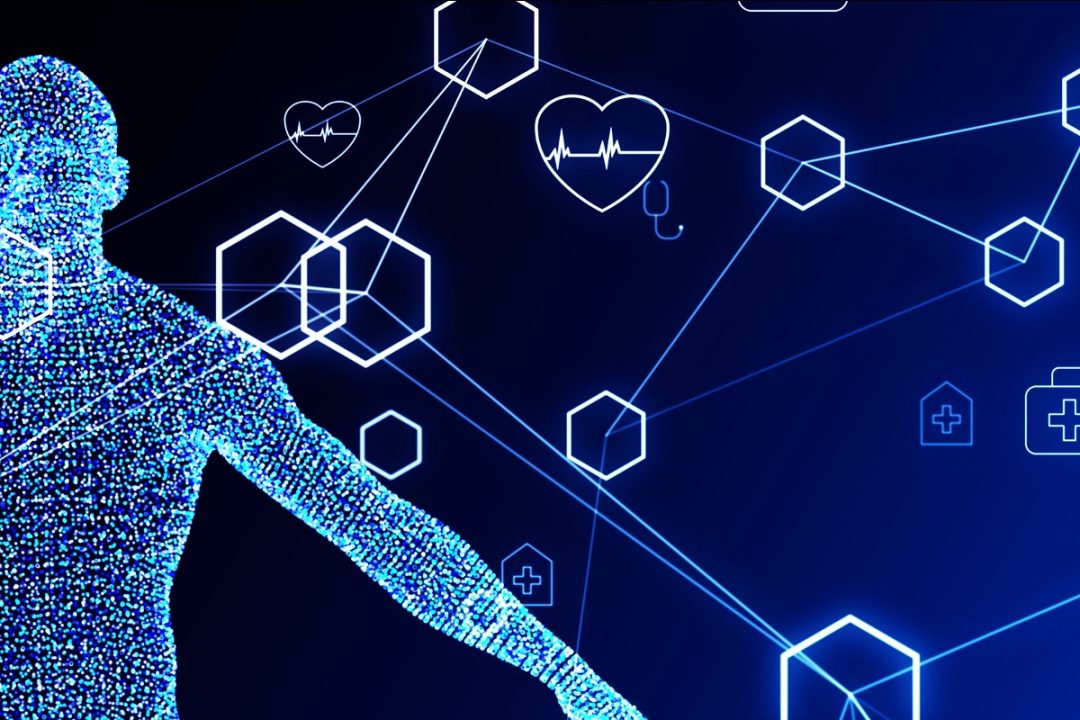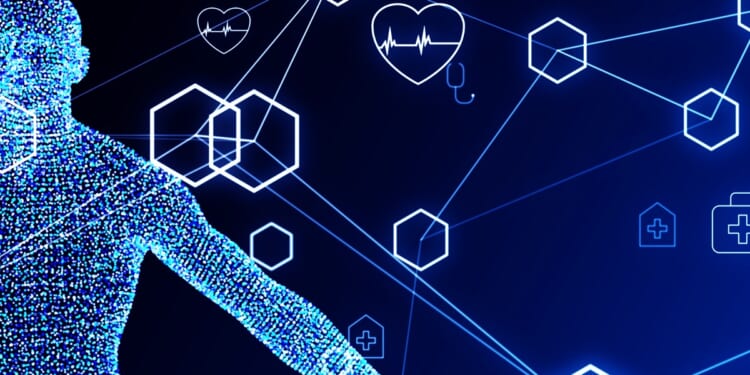
This summer, President Donald Trump unveiled a sweeping plan to “bring healthcare into the digital age.” He calls it the “Digital Health Tech Ecosystem.” Health and Human Services Secretary Robert F. Kennedy, Jr. also announced the launch of a digital health ID initiative in conjunction with Amazon, Apple, Google, OpenAI, and Anthropic. The latter is an AI startup that received most of its $580 million seed funding from the now-bankrupt FTX under convicted fraudster Sam Bankman-Fried.
This “Ecosystem” is part of the artificial intelligence (AI) venture Stargate Project, which Trump excitedly announced on his first day in office. Stargate is the reason you may have noticed large AI facilities springing up across the country, driving up energy prices with their unprecedented demand for electricity, and threatening aquifers with their unprecedented demand for water.
Trump declared Texas-based Stargate to be a $500 billion collaboration between leading tech companies that will make the United States the global leader in AI. Among investors are OpenAI CEO Sam Altman and Oracle chairman Larry Ellison. During the White House unveiling, Ellison bragged that Stargate’s AI would be able to produce cancer vaccines in 48 hours.
Microsoft and NVIDIA are two other U.S.-based investors, while Emirati state-owned MGX of Abu Dhabi and U.K.-based Arm Holdings, Inc. are also involved. Stargate’s chairman is Japanese billionaire Masayoshi Son, who also chairs Stargate investor SoftBank.
Data Not Secure
Naturally, the healthcare component of this technological boom is supposed to help the little guy: improving patient care through earlier disease detection and — you guessed it — vaccinations. But are we to believe that this international consortium of businesses has our best interests at heart?
For that matter, do our own politicians? During testimony before Congress earlier this year, Kennedy admitted: “My vision is that every American is wearing a wearable [health-related monitor] within four years.” But he dodged a follow-up question about plans to secure that personal health data. That’s disconcerting, considering the vulnerability of personal information in federal hands. Remember the early 2025 reveal that Elon Musk’s Department of Government Efficiency gained illicit access to 19 sensitive U.S. Health and Human Services databases, exposing everything from electronic health records to Social Security and bank details?
Wearables
The “wearable” health monitors would expand that data collection astronomically, creating a “digital twin” of yourself as government officials harvest vital signs, movement and sleep patterns, and other physical metrics in real time.
Moreover, Trump signed an executive order in March calling for data-sharing of personal information about Americans across federal agencies. His administration has since awarded more than $900 million in contracts to Peter Thiel’s data analytics company, Palantir, while even current and former employees have petitioned the company to pull out of the plans.
The HopeGirl Alternative News channel on Rumble depicts what healthcare in this modern Fourth Industrial Revolution will look like. Healthcare 4.0 works with a constant stream of data from wearable devices to analyze us — individually and population-wide — at every hour of the day in all settings. This system is already in operation. Starting in 2020, U.S. hospitals implemented “body area networks” (BAN) to deliver real-time vitals to the Pentagon’s Project Salus during the Covid “public health emergency.”
The REAL ID Connection
This helps explain why U.S. Homeland Security Secretary Kristi Noem finally enforced the REAL ID Act of 2005 this year. (Right now, it’s mandatory for domestic air travel and entering federal buildings, but the legislation allows for unlimited expansion of REAL ID requirements.) Until this year, various states stymied REAL ID, correctly labeling it a gross violation of Americans’ constitutionally protected rights. Now, the U.S. Transportation Security Administration boasts on its website about its biometric overhaul.
Indeed, the REAL ID Act allows states to collect biometric data (fingerprints, facial geometry, triangulated body measurements) on each of us. The Citizens’ Council for Health Freedom (CCHF) explains that the “purposes could include banking, employment or health care.”
CCHF warns: “REAL ID provides the digital and biometric infrastructure to implement a China-like control grid, where your access to services could depend on behavior, beliefs or health status.”
Nothing New
Such systems have been in the works for decades. Former President Barack Obama talked of building an “identity ecosystem” in cyberspace. And Bill Gates unveiled plans in late 2023 for a “digital public infrastructure” — including a programmable “central bank digital currency” — in UN member states to be operational within five years. The World Health Organization and the World Economic Forum are also pushing for these digital identification systems for a global control framework. It looks as though MAGA Trump and MAHA Kennedy are helping to bring these dreams to reality.
This article is part of The New American’s weekly online newsletter Insider Report, which is emailed to TNA subscribers each week. Click here to subscribe to The New American to receive the Insider Report and access exclusive content.











